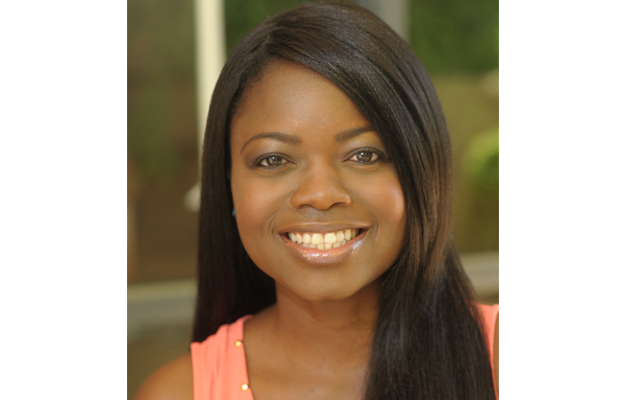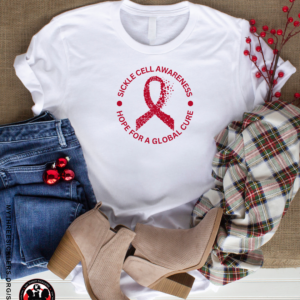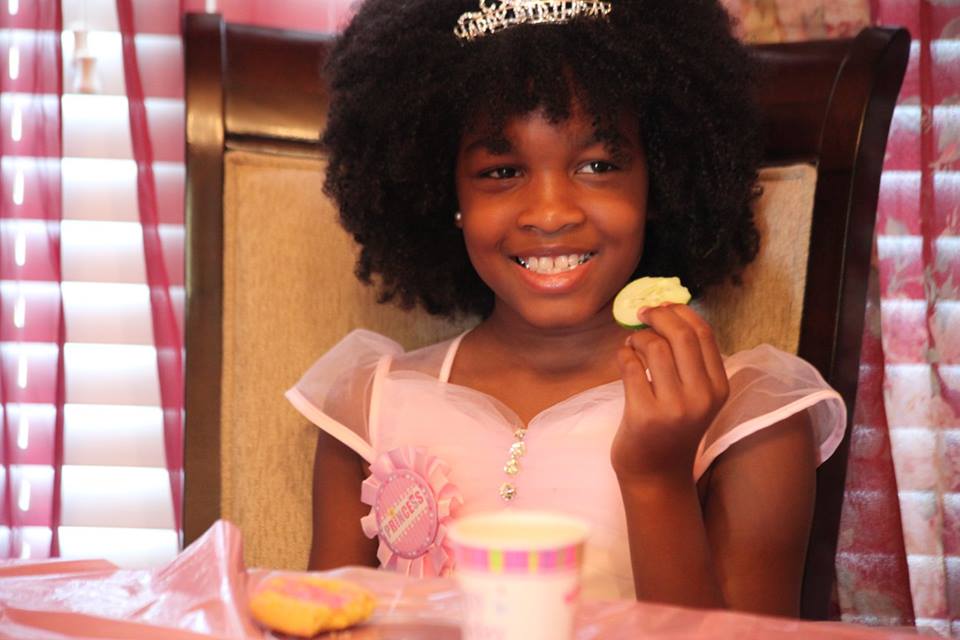By Tete Bropleh – September 15, 2016

She feels the pain that her three children go through on a daily basis against the backdrop of sickle cell disease that primarily affects people of African descent. The routine medical schedules, overnight stays in hospitals, more than fifty blood transfusions, six surgeries, and one stroke among her three daughters inspired model Mapillar Dahn to establish her own foundation to raise awareness about the disease.
Balancing time for work and sickle cell awareness activities has not been an easy task for the model, but her abilities to overcome such a challenge inspired the Life Changers Club International in the USA to recently honor her with the Women of Influence Award for her success.
In this interview, LIB Life welcomed Mapillar as we talked about her foundation and many other things.
LIB Life: Nice to have you for this interview. Please tell us more about your organization, and how long have you been doing this?
MD: MTS Sickle Cell Foundation is a nonprofit organization that carries on awareness about the disease as well as provides support to families affected by it. I’m part of the sickle cell community, therefore I feel obligated to look at all children with such a disease. I have been doing this since last November.
LIB Life: How is the journey so far?
MD: I have thoroughly enjoyed the journey thus far! It has been truly amazing. Whenever I meet a person with sickle cell disease, I see in him or her one of my daughters. When I meet a caregiver, I see myself. I feel a connection that is unexplainably firm in knowing that they understand what we go through and vice versa.
LIB Life: What keeps you motivated despite the challenges?
MD: I am motivated by the fact that so many people know so little about sickle cell disease. And that is scary because the statistics do not look very good, especially for us in the black community. Millions around the world are suffering and dying at a staggering rate. We can no longer afford to be mute about sickle cell disease. We can no longer afford to close the door and suffer in silence. I am so very hopeful for the future!
LIB Life: What are some of challenges that you have encountered along the way?
MD: The challenge for me was that I am a very busy mom and entrepreneur. There was a fear that I would not do a good job because I just have so much going on. Where were the extra hours coming from to take on this huge task? But in time I realized that of all the hats that I wear, excluding that of being a mom, bringing awareness to sickle cell disease has always been very close to my heart. Even when I wasn’t trying to, I was. After all, am I not that parent who is instilling in her daughters the importance of knowing about their condition? Once I stopped being scared, the answer was clear.
LIB Life: How do you get funding to carry on your mission?
MD: To date, the organization has received all of it funding from donors in the United States via our website, www.MyThreeSicklers.org. We have also raised money via GoFundMe for our Summer Camp campaign to send sickle cell patients to a week-long summer camp.
LIB Life: In the next three year or so, where do you see your organization?
MD: Within the next 3 to 5 years, I see our organization supporting families on a larger scale and being not just national, but going into countries with a high sickle cell population and expanding our awareness efforts. I would like to have college scholarships for college-bound sickle cell patients to encourage them in their educational endeavors. I will like to conduct testing expeditions to different countries to help populations who are predisposed to the sickle cell trait know their status.
LIB Life: In your spare time, what do you?
MD: In my spare time I love to watch movies and spend some quality time with my family and play puzzles, or sometimes just hang out in the backyard.
LIB Life: What really makes you happy, smile or even laugh?
MD: Watching my children clown around the house does it for me every time. They are so lively and love to sing and dance and make up dance moves. It’s pretty fun to watch.
LIB Life: It has been great getting to know more about your organization and about you, any last word?
MD: After I am gone, if my children, having of course mourn my passing, are living healthy, productive lives (all things considered), then my job here was done right. I care that people appreciate the work I’m doing through my foundation. But even if people did not appreciate it, I would still be doing it. I live for my children and have devoted my life to making sure that sickle cell disease does not define them. Yes, they have sickle cell disease; but they can be whatever they put their minds to. That is the only legacy that matters to me.









